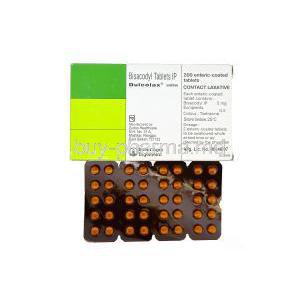Vicora
- I. Introduction to Vicora
- II. Composition of Vicora
- III. Mechanism of Action: How Vicora Works
- IV. Uses of Vicora
- V. Off-Label Uses of Vicora
- VI. Dosage and Administration
- VII. Vicora and Its Interactions
- VIII. Side Effects of Vicora
- IX. Warnings and Contraindications
- X. Special Considerations in Administration
- XI. Overdose Management
- XII. Storage and Handling Precautions
- XIII. Important Precautions
- XIV. Careful Administration: A Closer Look
I. Introduction to Vicora
A. Overview of Vicora
Vicora, a medication, has emerged as a crucial solution in modern medicine. It is well known for its effectiveness in treating health conditions.
B. Historical Development and Approval
The origins of Vicora can be traced back to ten years of research and clinical testing resulting in its approval by healthcare authorities. This significant achievement is a testament to its safety and efficacy.
II. Composition of Vicora
A. Active Ingredients
Vicora is a capsule manufactured by Delcure Life Sciences. It contains the following ingredients:
- Lactobacillus acidophilus
- Lactobacillus casei
- Lactobacillus rhamnosus
- Lactobacillus bulgaricus
- Bifidobacterium Breve
- Bifidobacterium longum
- Streptococcus thermophilus

B. Inactive Components and Formulations
In addition to the components, Vicoras formula incorporates inactive substances that help stabilize and improve the delivery of the medication. Each formulation is carefully designed to ensure patient adherence and absorption.
III. Mechanism of Action: How Vicora Works
A. Pharmacodynamics
Vicora showcases a pharmacodynamic profile engaging with various bodily systems to create beneficial effects. Its mode of action stands as evidence of advancements in pharmacology.
B. Impact on Specific Body Systems
Vicora focuses on body systems, showcasing a significant influence on physiological functions. Its careful treatment methodology guarantees effectiveness while minimizing any disturbances to the overall system.
IV. Uses of Vicora
A. Primary Indications
It is a rich source of probiotics and prebiotics that serve as herbal formulations that supply the human body with bacteria that are beneficial for the human gut. Vicora capsules are indicated to be used in the treatment of Non-alcoholic fatty liver disease (NAFLD) and rheumatoid arthritis 1. The capsules also help preserve the gut microbiota and keep the load of pathogens low 1. Additionally, Vicora capsules are used to prevent damage to the myelin sheath of the nerve fibers in the brain 1.
B. Spectrum of Efficacy
Vicoras' effectiveness covers a range of conditions, highlighting its versatility as a medical treatment. Its broad usefulness emphasizes its importance in treatment plans.
V. Off-Label Uses of Vicora
A. Exploring Unapproved Applications
Although it hasn't received approval, Vicora has shown usefulness in off-label applications, which allows it to explore new therapeutic possibilities in the medical field that have not yet been studied or approved.
B. Review of Research and Case Studies
New studies and real-life examples uncover how Vicora can be used beyond its intended purpose. These findings give us an understanding of its broader medical benefits and how it can contribute to innovative treatment methods.
VI. Dosage and Administration
A. Recommended Dosages
It is crucial to follow the recommended dosages of Vicora to ensure its effectiveness and safety. The dosage guidelines are carefully created by taking into account the drug's properties and each patient's individual factors.

B. Administration Techniques and Timings
The successful management of Vicora depends on using methods and timing to maximize the availability of the drug and achieve the desired therapeutic effects.
C. Adjustments for Specific Populations
It is important to make dosage adjustments for populations, such as the elderly, individuals with kidney problems, or children, to ensure that Vicora is used appropriately based on each patient's specific needs.
VII. Vicora and Its Interactions
A. Drug-Drug Interactions
How Vicora interacts with medications can affect how effective and safe it is. It's important to understand these interactions to avoid any effects and make sure the treatment works as well as possible.
B. Food and Lifestyle Interactions
Certain aspects of one's diet and lifestyle can affect how Vicora works in our bodies. Patients must be aware of these interactions so that they can use the medication safely and effectively.
VIII. Side Effects of Vicora
A. Common Side Effects
While Vicora capsules are generally safe to use, they may cause some side effects in rare cases. Some of the common side effects of Vicora capsules include nausea, diarrhea, and rash 2. However, these side effects are not experienced by everyone who takes the medication. If you experience any side effects while taking Vicora capsules, it is important to consult your doctor immediately.
IX. Warnings and Contraindications
A. Identifying High-Risk Groups
Patients who have medical conditions or are taking other medications are considered to be, at a higher risk when it comes to using Vicora. It is essential to identify these groups in order to use the medication safely and responsibly.
B. Situations Requiring Cautious Use
There are situations, in the medical field where it is essential to use Vicora with caution. In these cases, monitoring and adjusting the dosage is crucial to minimize any potential risks.
X. Special Considerations in Administration
A. Administration to Elderly Patients
Special considerations may be necessary when administering Vicora to patients due to changes in their pharmacokinetic and pharmacodynamic profiles.
B. Use in Pregnant Women and Nursing Mothers
When giving Vicora to women and nursing mothers, it's essential to carefully consider the advantages and potential dangers involved. This ensures the well-being and safety of both the mother and her child.
C. Pediatric Use and Adjustments
When it comes to treating children, the proper administration of Vicora requires adjustments in dosage and close monitoring. This is because we must consider the physiological characteristics that are specific, to this age group.
XI. Overdose Management
A. Symptoms of Overdosage
Recognizing the indications of a Vicora dosage is essential to intervene promptly.
Common symptoms involve:
- gastrointestinal discomfort like feeling sick or throwing up.
- It may also cause irregularities like abnormal heart rhythms or fluttering sensations.
- Additionally, it can lead to impairments such as confusion or seizures.
B. Immediate Actions and Treatment Protocols
If there is a concern about taking too much Vicora, it is essential to take these immediate steps:
1. Seek medical advice to determine the seriousness of the situation.
2. Consider using methods to remove the substance from the stomach if necessary.
3. Start providing care that addresses symptoms and provides support, such as monitoring heart activity.
4. Treatment plans will be customized based on how severe the overdose's what symptoms are present.
Remember that it's crucial to consult with a healthcare professional for guidance in case of Vicora overdose.
XII. Storage and Handling Precautions
A. Optimal Storage Conditions
To ensure that Vicora remains effective, following the recommended storage guidelines is essential.
- Store it in a dry location away from direct sunlight.
- It is best to maintain a temperature, preferably below 25°C.

B. Safety Measures and Disposal
It's essential to ensure Vicora's safety when disposing of and handling the medication. Remember not to throw it in household waste or wastewater. Instead it's best to consult your pharmacy or a local waste disposal company for guidelines on how to safely get rid of it. These precautions are in place to protect the environment and prevent medication use.
XIII. Important Precautions
A. Monitoring Requirements
It is essential to monitor patients receiving Vicora, paying particular attention to the following areas:
1. Conduct tests to assess liver and kidney function to identify any potential organ damage before it becomes a problem.
2. Perform evaluations for patients with pre-existing heart conditions to ensure their safety and well-being. By monitoring these aspects, we can proactively address any issues and ensure the effective administration of Vicora.
B. Preventative Measures and Patient Education
To prevent complications and ensure medication use, it is essential to educate patients about recognizing early signs of adverse reactions.
Additionally, advising them on lifestyle changes that can enhance the effectiveness of their treatment is crucial. Patient education plays a role in implementing preventative strategies.
XIV. Careful Administration: A Closer Look
A. Dose Adjustment in Renal and Hepatic Impairment
Patients who have kidney or liver problems require adjustments to the dosage of Vicora to minimize the chances of experiencing any harmful effects. This involves reducing the amount of medication given or increasing the time between doses depending on the impairment is severity. It is also essential to monitor the functioning of these organs during treatment.
B. Special Instructions for Compromised Patients
Patients who have underlying health issues should receive instructions such as tailored dosing plans based on their health status. It is also essential to monitor and report any adverse reactions to medications. These personalized care approaches are crucial in managing patients who belong to vulnerable groups.












